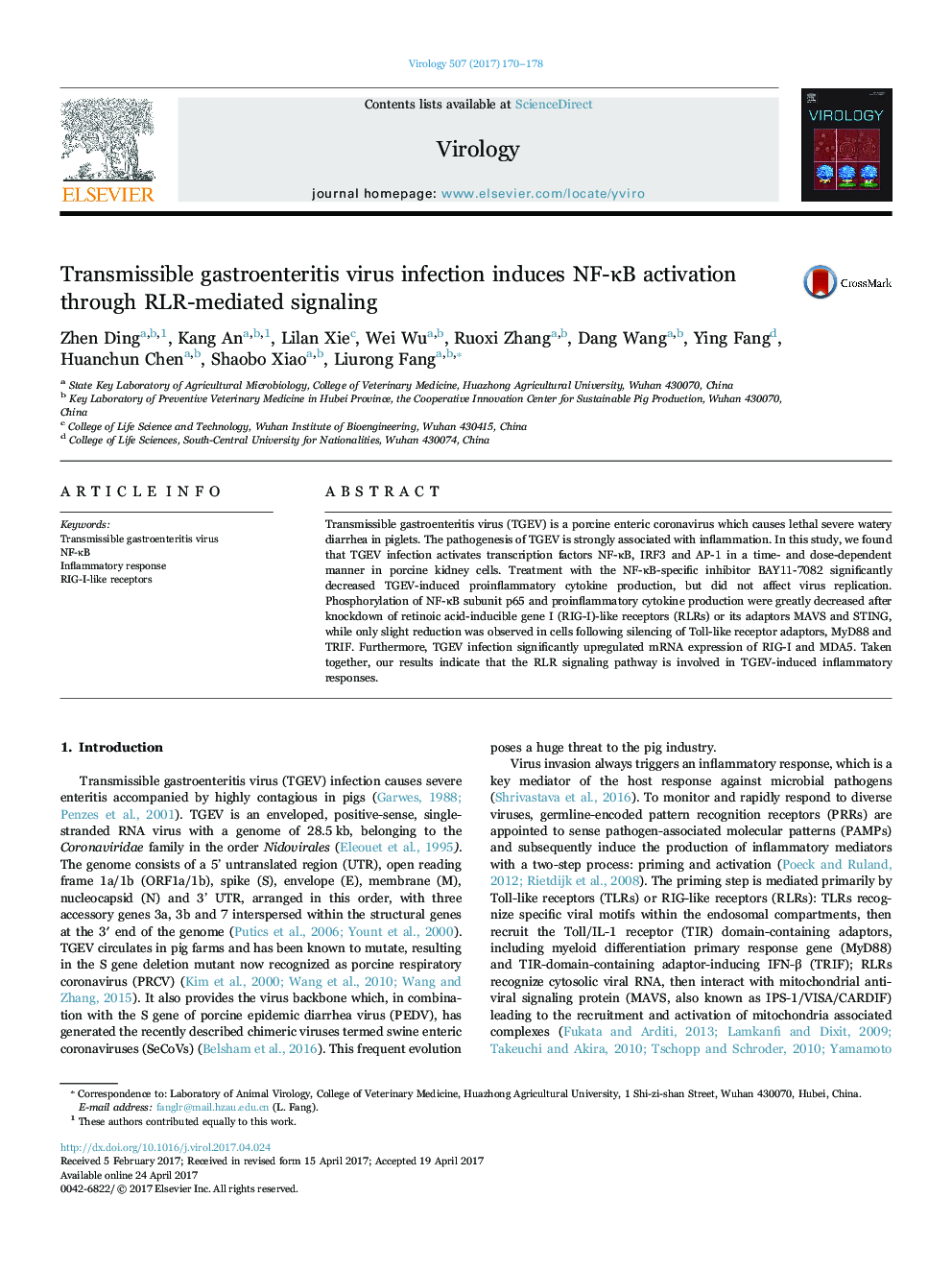| Article ID | Journal | Published Year | Pages | File Type |
|---|---|---|---|---|
| 5674970 | Virology | 2017 | 9 Pages |
â¢Transmissible gastroenteritis virus (TGEV) infection activates NF-κB.â¢Inhibition of NF-κB activation does not affect TGEV replication.â¢RLR signaling pathway is involved in TGEV-induced inflammatory responses.â¢TGEV infection significantly upregulates mRNA expression of RIG-I and MDA5.
Transmissible gastroenteritis virus (TGEV) is a porcine enteric coronavirus which causes lethal severe watery diarrhea in piglets. The pathogenesis of TGEV is strongly associated with inflammation. In this study, we found that TGEV infection activates transcription factors NF-κB, IRF3 and AP-1 in a time- and dose-dependent manner in porcine kidney cells. Treatment with the NF-κB-specific inhibitor BAY11-7082 significantly decreased TGEV-induced proinflammatory cytokine production, but did not affect virus replication. Phosphorylation of NF-κB subunit p65 and proinflammatory cytokine production were greatly decreased after knockdown of retinoic acid-inducible gene I (RIG-I)-like receptors (RLRs) or its adaptors MAVS and STING, while only slight reduction was observed in cells following silencing of Toll-like receptor adaptors, MyD88 and TRIF. Furthermore, TGEV infection significantly upregulated mRNA expression of RIG-I and MDA5. Taken together, our results indicate that the RLR signaling pathway is involved in TGEV-induced inflammatory responses.
